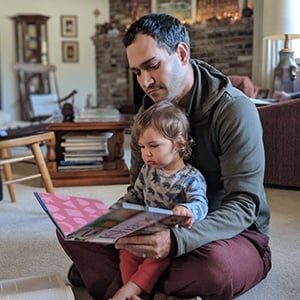On Monday, alongside the Python Software Foundation, we submitted a legal brief to the Supreme Court. This is a bit unusual for a small startup, so I wanted to explain what we did and why we did it.
The most successful platforms in tech history have often known that the best route to success is to let go of control, and grow the overall platform, knowing that a small piece of a big pie is better than a large piece of a small pie. That takes a bit of faith—you have to believe the pie is going to be bigger.
Open source is perhaps the ultimate expression of this faith—we believe that if we give our code away, we'll flourish. And so we've built Tidelift with this in mind: we think the best way to do well in open source is to offer real value to enterprises, and focus on how we can support that.
Of course, not everyone thinks this way. One obvious recent symptom of "control the pie" thinking is a wave of new not-quite-open licenses, which we've written about before. An older symptom is Oracle's nearly decade-long attempt to turn APIs from a resource anyone can build on into a chokepoint of control, by suing Google over Google's reimplementation of the Java APIs.
If this were solely between Oracle and Google, Tidelift likely would not have gotten involved. But Oracle, by repeatedly appealing their trial-court losses to the Federal Circuit, has set dangerous precedent. It is only a matter of time before other companies threatened by open source sue those projects for trying to provide innovative re-implementations of old APIs.
Our company, our customers, and the maintainers we support would be hurt if open source becomes a legal battleground, instead of competing on quality and innovation. Because of that, we joined with the Python Software Foundation to urge the Supreme Court to protect innovation by making clear that there is a strong fair use defense for open source projects reimplementing APIs.
Our position is bold only in the sense that it opposes Oracle. At core, it is actually quite conservative—we’re seeking to restore a balance that is at least thirty years old, and which Oracle itself relied on when copying IBM’s SQL API to build the first Oracle databases.
And we’re in good company—a wide variety of industry groups also filed similar briefs, including elite computer science professors, copyright law scholars, and a tiny company called (checks notes) Microsoft.
I didn’t join Tidelift to create legal doctrine. I had hoped that part of my life was mostly behind me. But where it is consistent with our mission (to make open source better for everyone!) I hope we’ll continue to grow and support excellent efforts like this one from the PSF.
Our great thanks to Van Lindberg and the Python Software Foundation for leading this brief!


 50 Milk St, 16th Floor, Boston, MA 02109
50 Milk St, 16th Floor, Boston, MA 02109